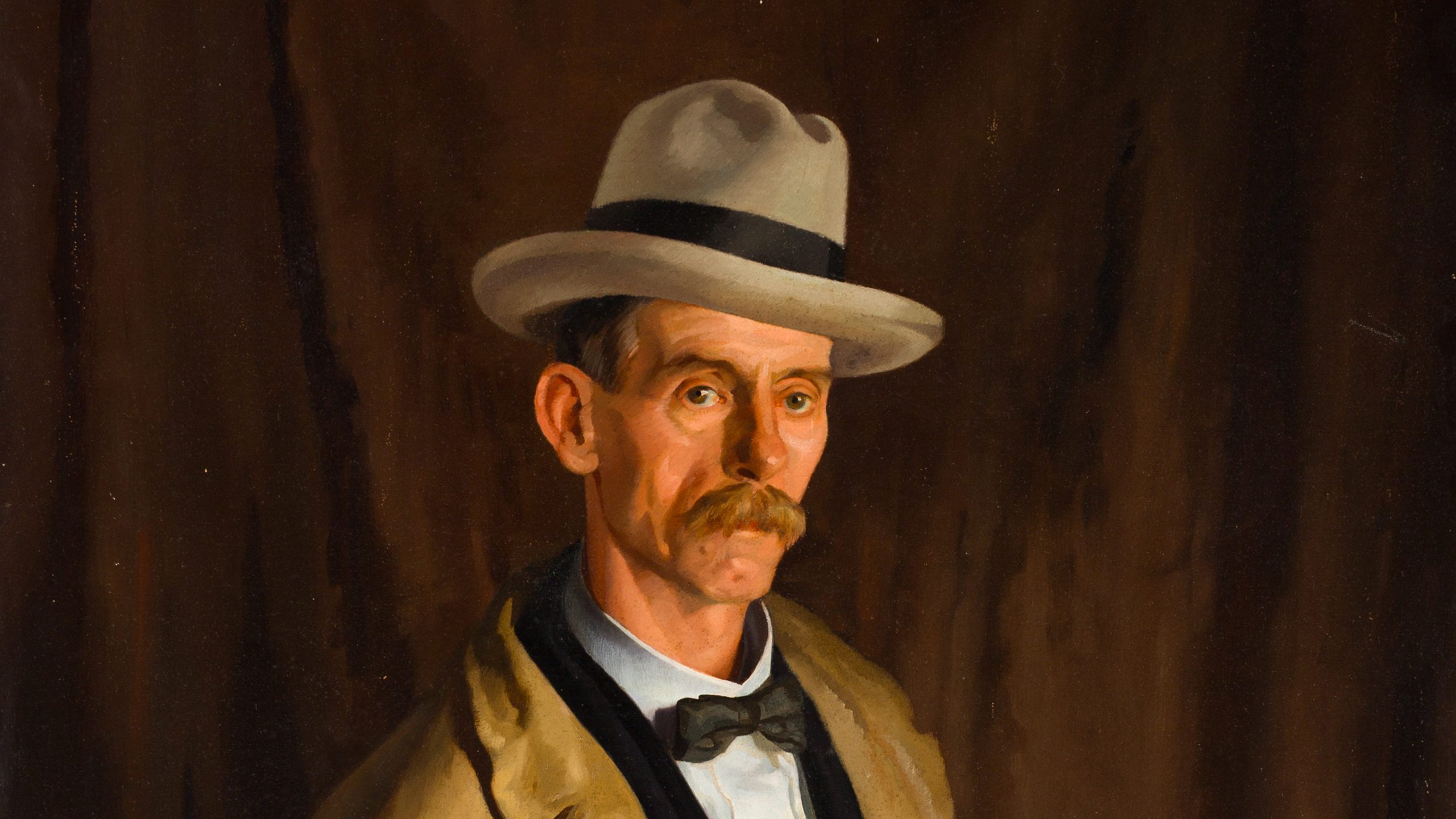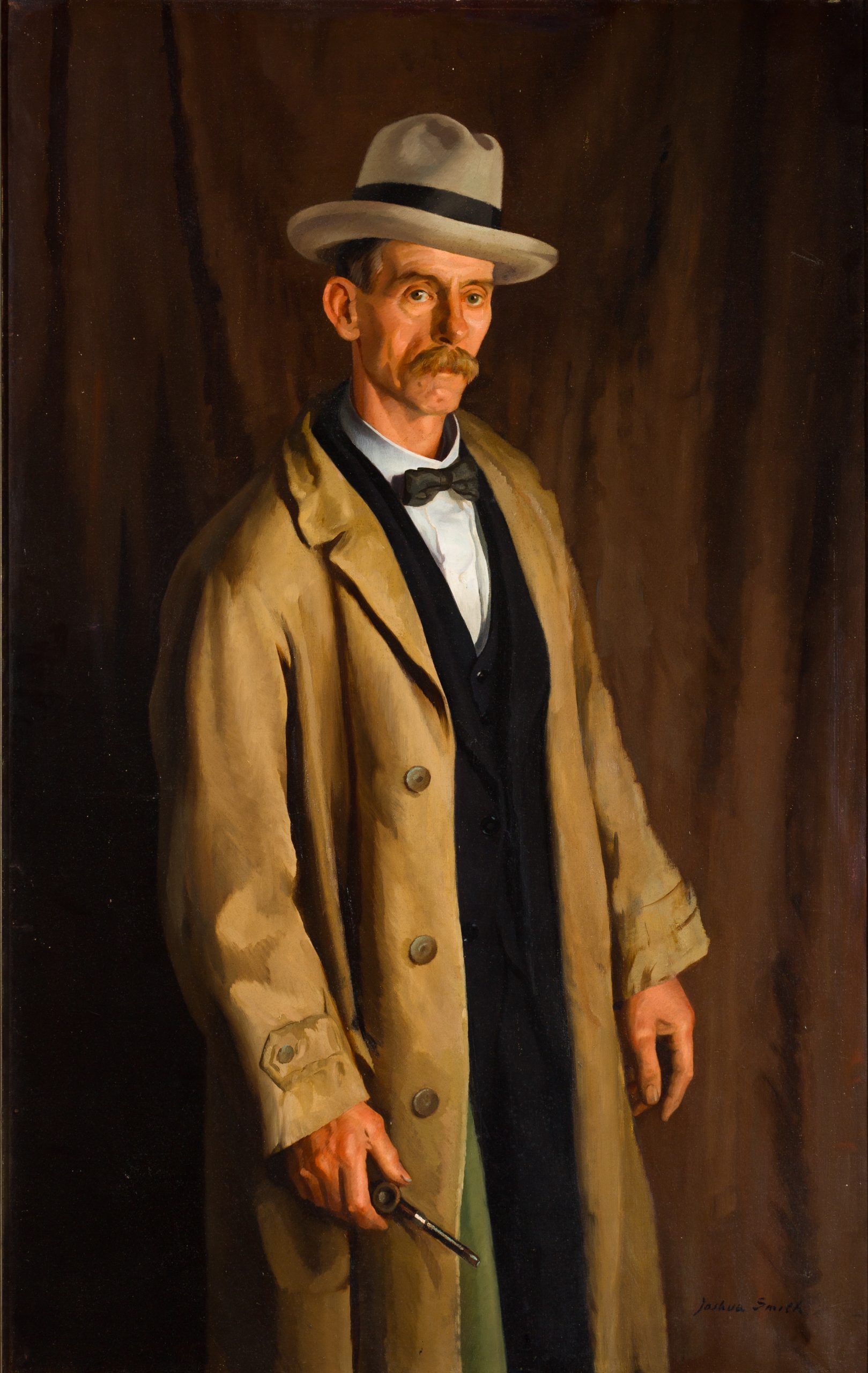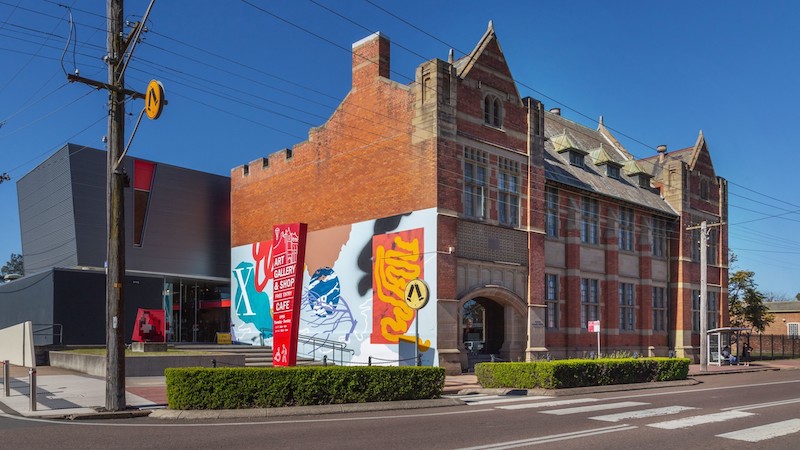An Impact on the Scene
Joshua Smith and the Burden of Change
A traditionalist in painting style, and an artist who worked primarily in oils, Joshua Smith (1905-1995) was a finalist in the 1937 Archibald Prize for this portrait of his father, titled J.W.A Smith. Prior to the 1940s, the Australian art scene was dominated by conservative artists. Though Sydney boasted progressive creative circles and ideas traditional art styles, techniques and mediums still held sway in the public eye and art prize circles – as Smith’s portrait illustrates.
However, it was not his own work that gave Smith recognition as an artist but a portrait of him, painted by fellow artist and friend William Dobell (1899-1970). Dobell’s painting was called Portrait of an Artist (Joshua Smith), and it won the 1943 Archibald Prize. Smith’s portrait by Dobell was widely denigrated, but it was also praised. An ensuing debate centered on whether the work was (truly) a portrait, or a caricature.
Dobell’s portrait of Smith plagued Smith’s career as an artist. And the critical attention given to the painting ended Smith’s friendship with Dobell. In 1944, because of the the criticism the portrait had received, the Federal government’s Historic Memorials Committee hesitated at entering a portrait it commissioned from Smith, of the then Speaker of the House John Solomon (Sol) Rosevear, in that year’s Archibald Prize. The committee felt that entering Smith’s portrait would give new attention to the Dobell portrait and the debate of the previous year.
Decades after, in 1990 Smith told a Sydney journalist that Dobell’s portrait of him was ‘…a curse, a phantom that haunts me. It has torn at me every day of my life.’ And that was despite actually winning the Archibald Prize in 1944.





